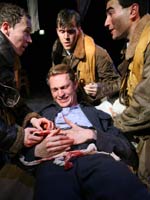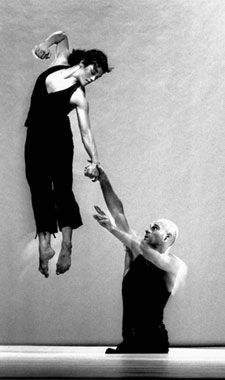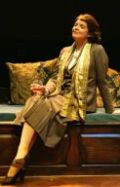
To the Globe yesterday, for Lucy Bailey's production of Titus Andronicus, the second play in Dominic Dromgoole's Edges Of Rome season.
It's been a couple of years since I was last at the Globe and before now I've always stood in the yard, as a 'groundling.' This was different, middle tier tickets and an evening showing, the sky slowly darkening above the theatre. I was looking forward to seeing what designer William Dudley would do with the space but found the results rather disappointing. Swathing everything in dark cloth didn't really create the intense and funereal atmosphere intended.
Bailey's production was more exciting, making better use of the theatre's unique space, than any other production I've seen there. The crowd in the yard regularly had to scatter as actors and musicians moved through them, on foot and on moveable wooden platforms. But for all its invention, this is a productin of one of Shakespeare's most difficult and dramatically unwieldy, brimful with blood and violence. Bailey tried to temper all this with humour, to send up the play's excesses but she only partially suceeded. Still, a performance at the Globe is always an experience. And it was a lovely - if very chilly - evening, the sky full of soft orange clouds, the city shining, the river still.




